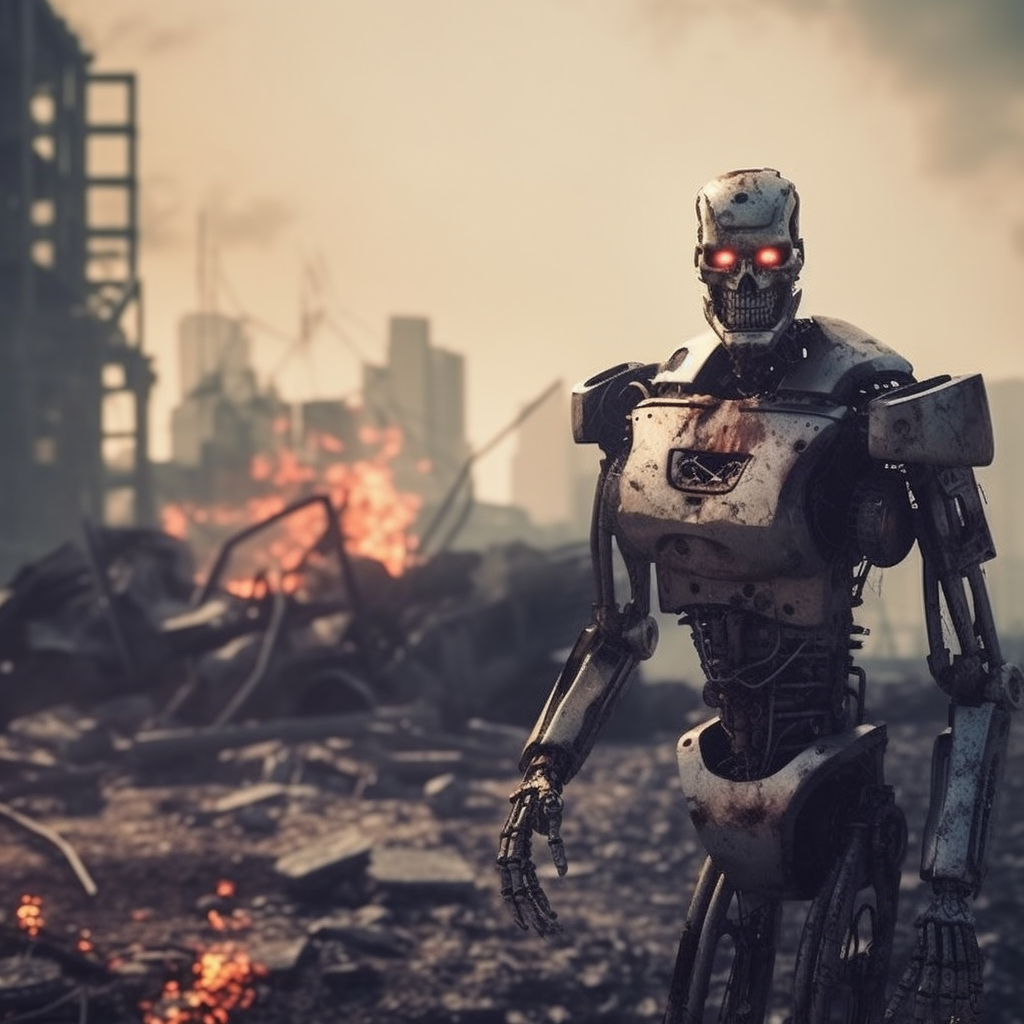The advancement of artificial intelligence (AI) has opened up new possibilities and transformed various aspects of our lives. From voice assistants to autonomous vehicles, AI has become an integral part of modern society. However, as AI technology continues to evolve, questions and concerns about its potential implications arise. One of the most prominent concerns is the idea of a robot apocalypse, where AI surpasses human intelligence and poses a threat to humanity. In this article, we will explore the concept of surviving a robot apocalypse and examine the potential implications of AI advancements for our future.
Understanding Artificial Intelligence
To comprehend the potential impact of a robot apocalypse, it is crucial to understand the fundamentals of artificial intelligence. AI refers to the development of computer systems that can perform tasks requiring human-like intelligence, such as problem-solving, decision-making, and learning from data. While AI has made significant progress in recent years, it is essential to note that current AI technologies operate within specific boundaries and lack general intelligence. However, as AI research progresses, concerns arise regarding the potential for AI to surpass human capabilities.
Benefits and Applications of AI
Before delving into the potential risks, it is important to acknowledge the numerous benefits and applications of AI. AI has the potential to revolutionize various industries, including healthcare, transportation, finance, and more. It can assist in diagnosing diseases, enhancing productivity, improving customer experiences, and driving scientific advancements. AI-powered robots can perform tasks that are dangerous or labor-intensive for humans, increasing safety and efficiency in areas such as manufacturing and disaster response. By leveraging AI, we can achieve significant progress and improve the quality of human life.
The Risks of Advanced AI
While AI offers immense benefits, concerns arise when discussing the potential risks associated with advanced AI systems. One of the main concerns is the concept of a robot apocalypse or AI surpassing human intelligence. The fear stems from the idea that if AI gains self-awareness and the ability to improve itself, it may outpace human intelligence and act against human interests. Additionally, there are concerns regarding the misuse of AI technology by malicious actors, leading to unintended consequences and potential harm.
Ethical Considerations and Safeguards
Addressing the risks associated with advanced AI requires a robust ethical framework and safeguards. Ethical considerations involve ensuring that AI systems are designed to align with human values, are transparent and explainable, and promote fairness and accountability. There is a need for comprehensive regulation and policies to govern the development and deployment of AI technologies. Additionally, the establishment of interdisciplinary research collaborations and ethical review boards can help navigate the complex ethical challenges posed by AI.
Human-Machine Collaboration
Instead of viewing AI as a threat, an alternative approach is to focus on human-machine collaboration. AI can augment human capabilities, leading to improved decision-making, problem-solving, and creativity. By embracing this collaboration, we can harness the power of AI while retaining human control and values. This approach promotes the idea of AI as a tool that can enhance human potential rather than replace it.
Preparing for the Future
To prepare for the future, it is crucial to invest in AI research, education, and infrastructure. Developing a comprehensive understanding of AI, its capabilities, and limitations can help us navigate the potential risks. Encouraging interdisciplinary collaborations and public discourse can promote responsible AI development and deployment. Additionally, fostering a culture of lifelong learning and adaptability will empower individuals to thrive in a world influenced by AI.
The concept of a robot apocalypse and the risks associated with advanced AI systems should be approached with careful consideration. While it is essential to acknowledge the potential risks, it is equally important to recognize the significant benefits and applications of AI. By fostering ethical considerations, embracing human-machine collaboration, and preparing for the future, we can navigate the path forward and ensure that AI advancements contribute positively to our society, enabling us to survive and thrive in the age of artificial intelligence.





